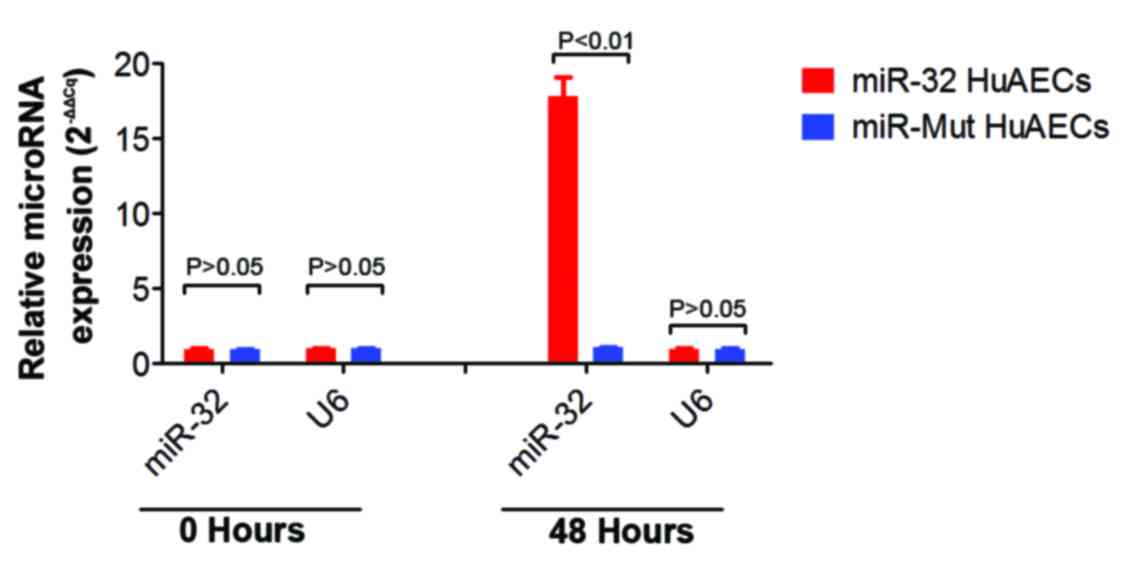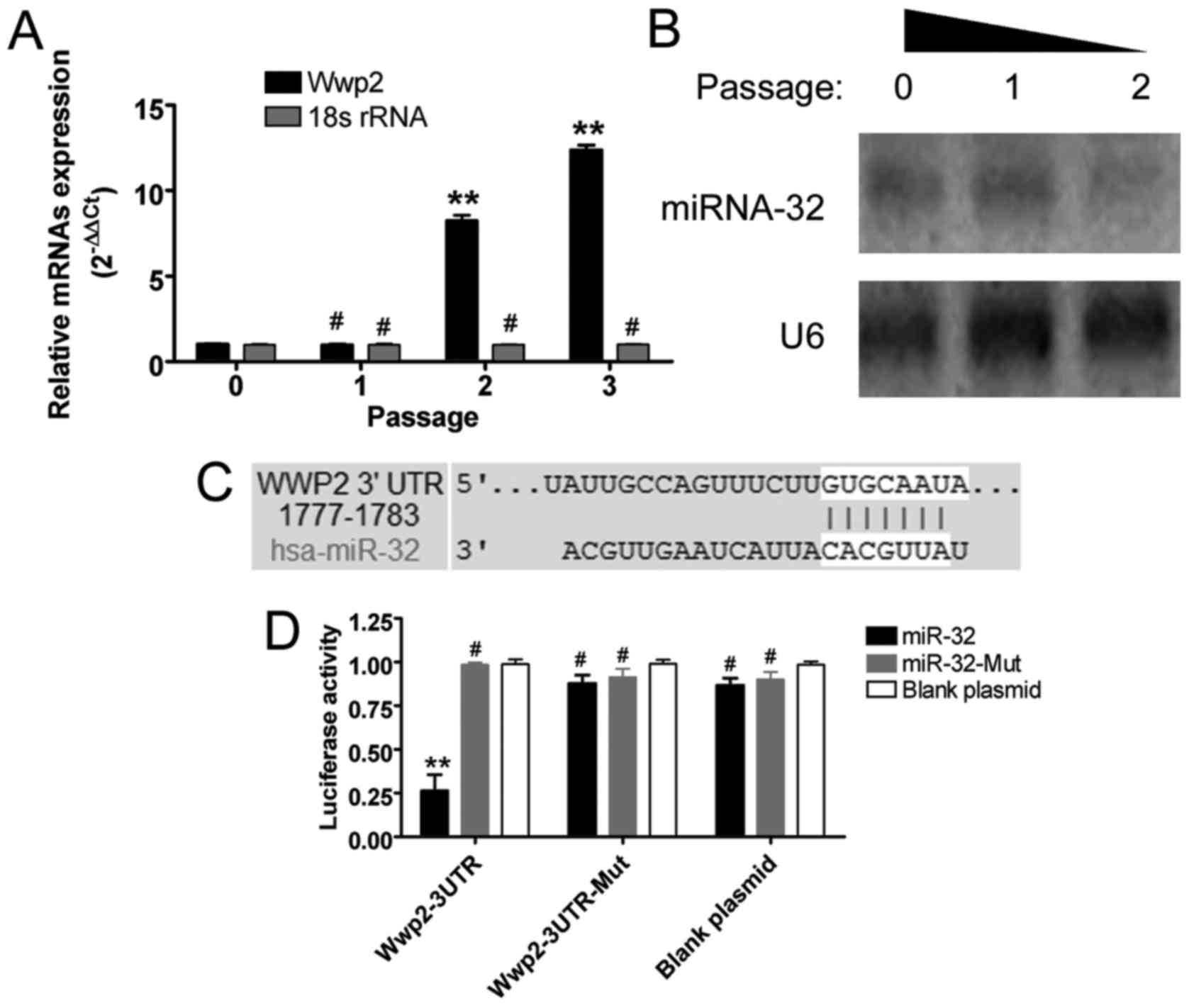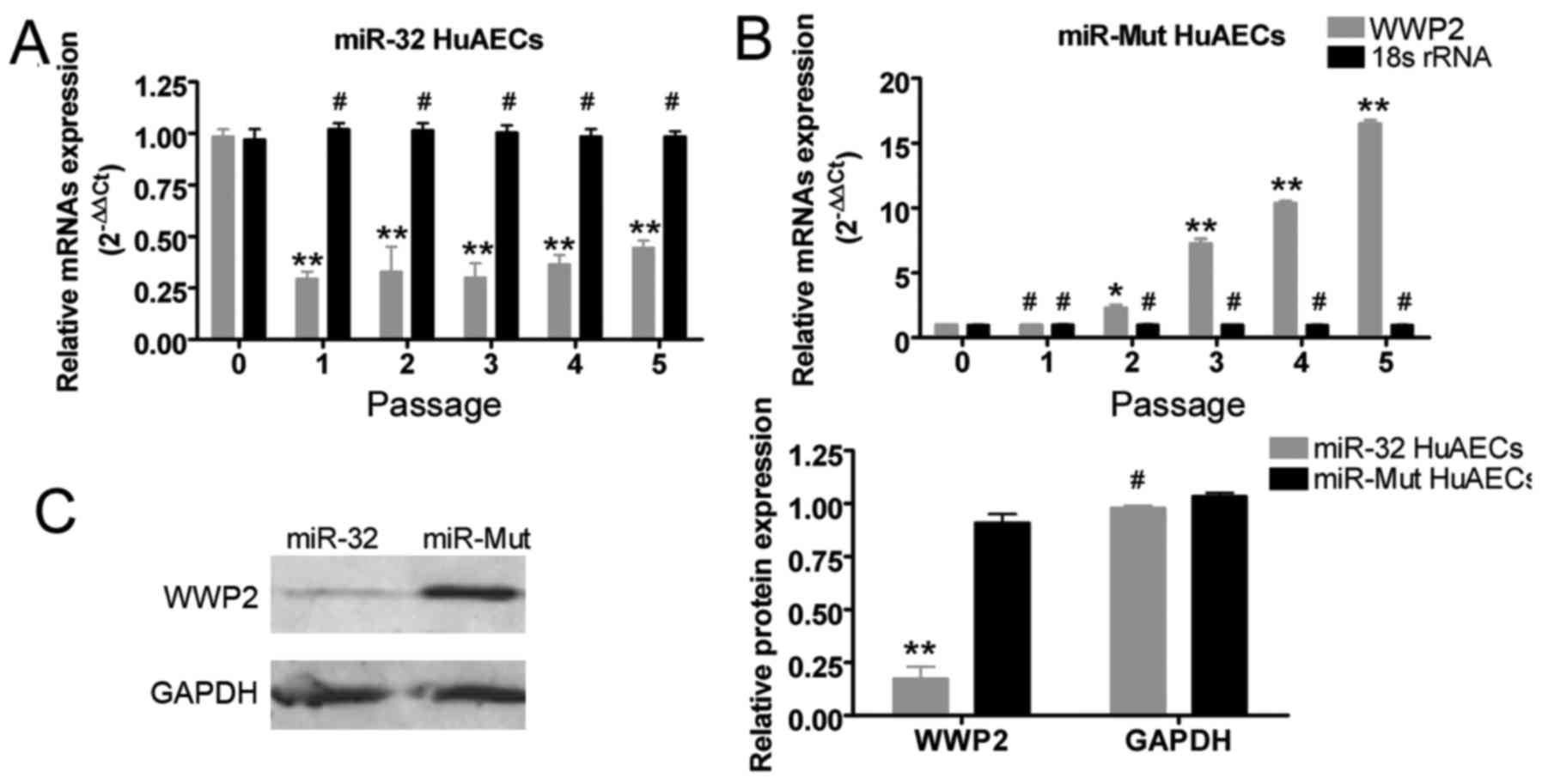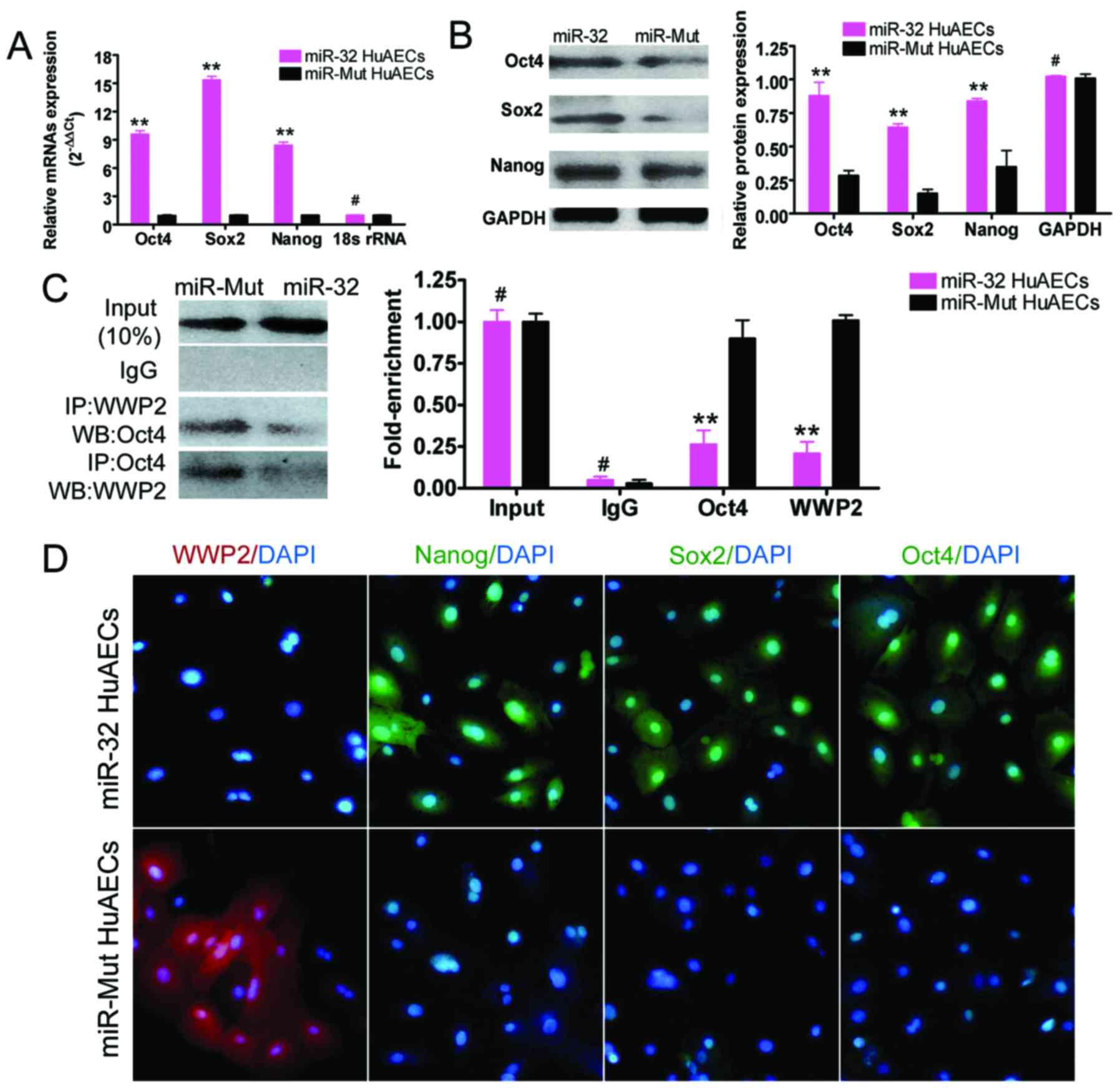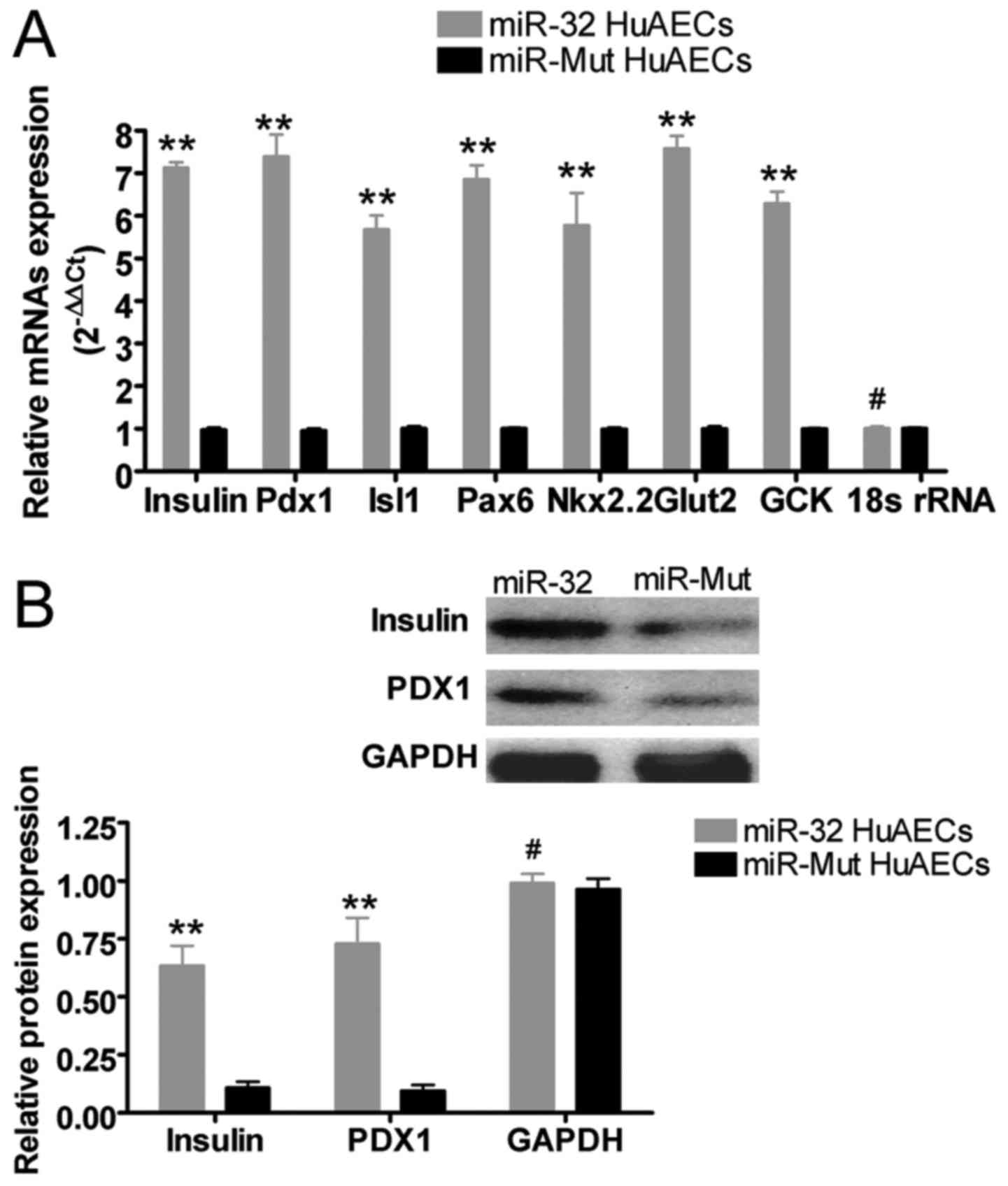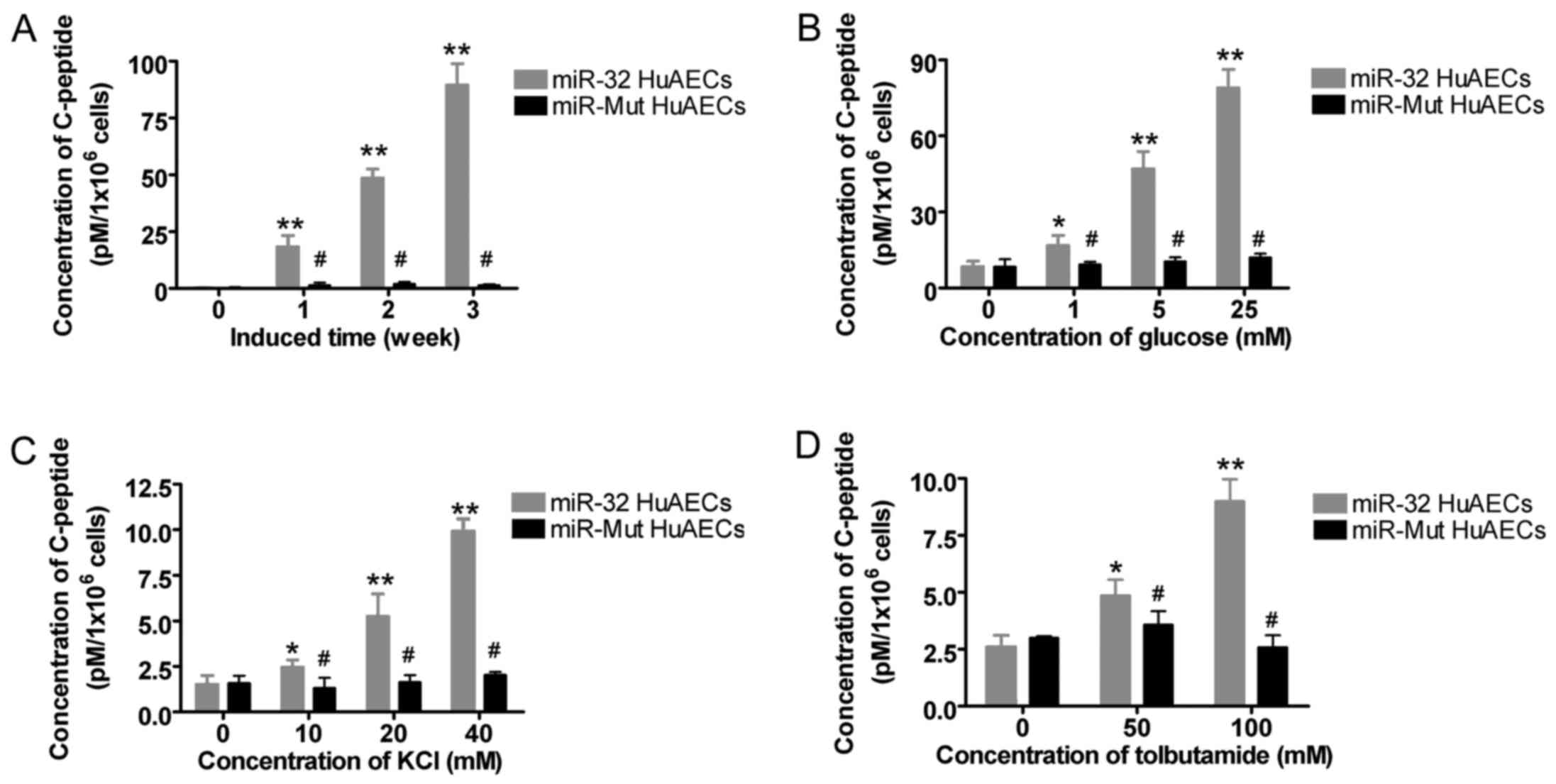|
1
|
Liu T, Wu J, Huang Q, Hou Y, Jiang Z, Zang
S and Guo L: Human amniotic epithelial cells ameliorate behavioral
dysfunction and reduce infarct size in the rat middle cerebral
artery occlusion model. Shock. 29:603–611. 2008.PubMed/NCBI
|
|
2
|
Liu YH, Chan J, Vaghjiani V, Murthi P,
Manuelpillai U and Toh BH: Human amniotic epithelial cells suppress
relapse of corticosteroid-remitted experimental autoimmune disease.
Cytotherapy. 16:535–544. 2014. View Article : Google Scholar : PubMed/NCBI
|
|
3
|
Liu XY, Chen J, Zhou Q, Wu J, Zhang XL,
Wang L and Qin XY: In vitro tissue engineering of lamellar cornea
using human amniotic epithelial cells and rabbit cornea stroma. Int
J Ophthalmol. 6:425–429. 2013.PubMed/NCBI
|
|
4
|
Verma R, Oania R, Graumann J and Deshaies
RJ: Multiubiquitin chain receptors define a layer of substrate
selectivity in the ubiquitin-proteasome system. Cell. 118:99–110.
2004. View Article : Google Scholar : PubMed/NCBI
|
|
5
|
Jennissen HP: Ubiquitin and the enigma of
intracellular protein degradation. Eur J Biochem. 231:1–30. 1995.
View Article : Google Scholar : PubMed/NCBI
|
|
6
|
Guardavaccaro D and Pagano M: Oncogenic
aberrations of cullin-dependent ubiquitin ligases. Oncogene.
23:2037–2049. 2004. View Article : Google Scholar : PubMed/NCBI
|
|
7
|
Zhao B, Bhuripanyo K, Schneider J, Zhang
K, Schindelin H, Boone D and Yin J: Specificity of the E1-E2-E3
enzymatic cascade for ubiquitin C-terminal sequences identified by
phage display. ACS Chem Biol. 7:2027–2035. 2012. View Article : Google Scholar : PubMed/NCBI
|
|
8
|
Chen Z and Lu W: Roles of ubiquitination
and SUMOylation on prostate cancer: Mechanisms and clinical
implications. Int J Mol Sci. 16:4560–4580. 2015. View Article : Google Scholar : PubMed/NCBI
|
|
9
|
Liao B and Jin Y: Wwp2 mediates Oct4
ubiquitination and its own auto-ubiquitination in a
dosage-dependent manner. Cell Res. 20:332–344. 2010. View Article : Google Scholar
|
|
10
|
Xu H, Wang W, Li C, Yu H, Yang A, Wang B
and Jin Y: WWP2 promotes degradation of transcription factor OCT4
in human embryonic stem cells. Cell Res. 19:561–573. 2009.
View Article : Google Scholar : PubMed/NCBI
|
|
11
|
Chen W, Jiang X and Luo Z: WWP2: A
multifunctional ubiquitin ligase gene. Pathol Oncol Res.
20:799–803. 2014. View Article : Google Scholar : PubMed/NCBI
|
|
12
|
Zou W, Chen X, Shim JH, Huang Z, Brady N,
Hu D, Drapp R, Sigrist K, Glimcher LH and Jones D: The E3 ubiquitin
ligase Wwp2 regulates craniofacial development through
mono-ubiquitylation of Goosecoid. Nat Cell Biol. 13:59–65. 2011.
View Article : Google Scholar
|
|
13
|
Xu HM, Liao B, Zhang QJ, Wang BB, Li H,
Zhong XM, Sheng HZ, Zhao YX, Zhao YM and Jin Y: Wwp2, an E3
ubiquitin ligase that targets transcription factor Oct-4 for
ubiquitination. J Biol Chem. 279:23495–23503. 2004. View Article : Google Scholar : PubMed/NCBI
|
|
14
|
Li H, Zhang Z, Wang B, Zhang J, Zhao Y and
Jin Y: Wwp2-mediated ubiquitination of the RNA polymerase II large
subunit in mouse embryonic pluripotent stem cells. Mol Cell Biol.
27:5296–5305. 2007. View Article : Google Scholar : PubMed/NCBI
|
|
15
|
Liu T, Chen Q, Huang Y, Huang Q, Jiang L
and Guo L: Low microRNA-199a expression in human amniotic
epithelial cell feeder layers maintains human-induced pluripotent
stem cell pluripotency via increased leukemia inhibitory factor
expression. Acta Biochim Biophys Sin (Shanghai). 44:197–206. 2012.
View Article : Google Scholar
|
|
16
|
Liu T, Cheng W, Huang Y, Huang Q, Jiang L
and Guo L: Human amniotic epithelial cell feeder layers maintain
human iPS cell pluripotency via inhibited endogenous microRNA-145
and increased Sox2 expression. Exp Cell Res. 318:424–434. 2012.
View Article : Google Scholar
|
|
17
|
Liu T, Cheng W, Liu T, Guo L, Huang Q,
Jiang L, Du X, Xu F, Liu Z and Lai D: Human amniotic epithelial
cell feeder layers maintain mouse embryonic stem cell pluripotency
via epigenetic regulation of the c-Myc promoter. Acta Biochim
Biophys Sin (Shanghai). 42:109–115. 2010. View Article : Google Scholar
|
|
18
|
Zou G, Liu T, Zhang L, Liu Y, Li M, Du X,
Xu F, Guo L and Liu Z: Induction of pancreatic β-cell-like cells
from CD44+/CD105+ human amniotic fluids via epigenetic regulation
of the pancreatic and duodenal homeobox factor 1 promoter. DNA Cell
Biol. 30:739–748. 2011. View Article : Google Scholar : PubMed/NCBI
|
|
19
|
Livak KJ and Schmittgen TD: Analysis of
relative gene expression data using real-time quantitative PCR and
the 2(-Delta Delta C(T)) Method. Methods. 25:402–408. 2001.
View Article : Google Scholar
|
|
20
|
Liu T, Qin W, Hou L and Huang Y:
MicroRNA-17 promotes normal ovarian cancer cells to cancer stem
cells development via suppression of the LKB1-53-21/WAF1 pathway.
Tumour Biol. 36:1881–1893. 2015. View Article : Google Scholar
|















